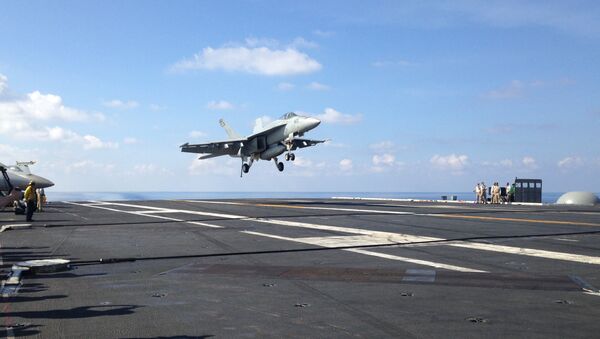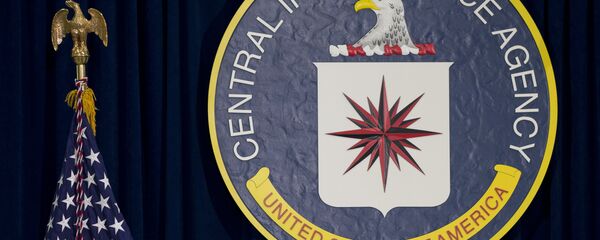On Friday, Secretary of Defense Ashton Carter announced that the US military is dispatching warplanes and troops to the South China Sea as tensions with Beijing over the contested Spratly and Paracel Islands simmer.
The Secretary of Defense, who visited a new US aircraft carrier in the South China Sea on Friday, also said that US and Philippine troops will be conducting joint naval patrols and joint air patrols to deter Chinese ‘expansionism’ in the region.
The Paracel and Spratly island chains, contested by China and several of its South China Sea neighbours, have been a major area of contention in recent years. China, under the UN Convention of the Law of the Sea, has the most direct claim to the territories and has taken steps in recent months to cement those claims by establishing civilian air travel to the islands and setting up military air hangars.
The US, itself not a signatory to the Law of the Sea treaty, nevertheless cites the treaty as a reason that China lacks a claim, and is calling for the matter to be resolved in the arbitration body established by the treaty, vowing to members of ASEAN, an alliance established by the US with China’s neighbours in an attempt to encircle Beijing, that they will protect these country’s claims against Chinese aggression.
In the midst of what some would claim to be a nascent world conflict, Loud & Clear’s Brian Becker sat down with political analyst Dmitry Babich to discuss the situation.
Does Secretary Carter’s announcement of an increased US military presence in the South China Sea increase the likelihood of conflict?
"I think it does, and I would say that the United States has intentionally created tension in the South China Sea for the last three years which led to the rapprochement of China and Russia, which nobody expected," said Babich. The analyst explained that in 2014 China agreed, after long protestation, to pay Russia a higher amount on oil imports.
Babich thinks that the risk of conflict, despite recent provocations from the West, are slight, noting that China’s long-term strategy has been to maintain amicable relations with the United States for economic and trade purposes.
Nonetheless, he is concerned that "China may be left with no choice" other than to avoid conflict.
"Put yourself in the shoes of the Chinese leadership – Japan is quickly abandoning the remnants of its post-war pacifism and is rearming themselves, and the United States is conducting all of these huge military exercises in the South China Sea.” Babich suggests that, “in the long run, China may be forced to abandon their rather benign attitude towards the United States."
Is the US building a military alliance against China?
"I don’t even think that the US officials are trying to hide it," said Babich. "They see China as the main adversary in the modern world even more so than Russia. Listen to the rhetoric of the presidential candidates."
Babich believes that American political rhetoric shifted in 2012 after Mitt Romney called for China to be labeled a currency manipulator and subsequent signals from the Obama administration that the US would crack down on China as part of a pivot toward Asia.
"The United States wants to dominate the world, including the Pacific region, and you cannot dominate unless you subdue China," said Babich. However, Babich believes that the Chinese have learned from comparable experiences with Russia and will be able to avoid being caught by surprise when the "dubious attitude of being both a friend and a competitor is quickly replaced with open animosity."
"If you look very attentively at China’s diplomatic moves then you see that they are very unwilling to have a confrontation with the United States," said Babich. "But, if they are forced to have a confrontation then they are ready for it."
Is US aggression toward China driven by imperial ambitions or the military-industrial complex?
"In the short-term the military-industrial complex wins, because they will get more orders from the US government," said Babich, explaining that war profiteering is the primary driver in the description of the regional disagreement as a potential military conflict.
"I would also say that ideologically-biased politicians in the United States will win because they will flood us with stories of Chinese authoritarianism and the need to protect US allies in the Western Pacific," remarked Babich.
He added, "We will hear the same things we heard about Poland, Ukraine, and the Baltics from President Obama and again there will not be a single wad of truth in it."






